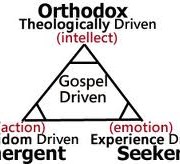THE PERFECT BRIDE?
“Let us be glad and rejoice and give Him glory, for the marriage of the Lamb has come, and His wife has made herself ready.” And to her it was granted to be arrayed in fine linen, clean and bright, for the fine linen is the righteous acts of the saints.” Revelation 19:7-8
“Then I, John, saw the holy city, New Jerusalem, coming down out of heaven from God, prepared as a bride adorned for her husband. And I heard a loud voice from heaven saying, “Behold, the tabernacle of God [is] with men, and He will dwell with them, and they shall be His people. God Himself will be with them [and be] their God. “And God will wipe away every tear from their eyes; there shall be no more death, nor sorrow, nor crying. There shall be no more pain, for the former things have passed away.” Revelation 21:2-4
If there is a day on which a bride appears nearly in a state of perfection it is her wedding day. She isn’t wearing old and tattered clothing. Whatever perceived flaws of skin and appearance are covered. For many brides the joy of being united to their groom in marriage subdues even the most negative dispositions or would-be sources of discouragement on that day. Little things that would seem monumental on any other day seem to fade away into insignificance at the joy of how she looks, feels, and what she is experiencing.
So it will be with the Bride of Jesus Christ (the church) in a similar way on her wedding day, yet her perfection will be entirely literal. The scars she now bears will be utterly healed. Her struggle with sin and unfaithfulness will be transformed and redeemed. Her vulnerability to deception and discouragement will vanish. God’s Word goes so far as to tell us that every tear will be wiped from her eyes. Death will hold no threat in her life anymore. And the greatest of all gifts is that she will never be separated by time, space, or sin from her glorious Groom, Jesus Christ!
The Bride
In the Bible the Bride is symbolic of the church. She represents all of Jesus’ people who are His through faith in the biblical gospel. If you know that you’ve offended God in your behavior, thought-life, and attitude toward Him, there is good news! God came to earth as the Man Jesus Christ on a rescue mission of love for you. Knowing you could never live a truly righteous life from the inside out, Jesus fulfilled that requirement for you. He lived a perfect human life in your place never acting unrighteously at the level of thought, desire, emotion, or behavior for you. He took the penalty you deserve to undergo because of sin. The Bible tells us the wages of sin is death and Jesus died in your place for yours sins on a roman cross some two-thousand years ago. Further, while on that cross He became a propitiation for you. This means He soaked up the wrath of God the Father which was directed at your sin like a sponge soaks up water. And victory of victories, He rose from the dead conquering satan, sin, demons, death, and hell on your behalf. His offer of love is that if you understand your sin and trust in all He did for you to be a sufficient remedy to your sin and a bridge between you and the God from whom you are separated, He will forgive you. He will clear your spiritual record forever. He will consider you His perfect child, and part of His perfect Bride, in spite of your enduring imperfections in this life.
Already/Not Yet
Faith in this gospel brings the believing person into an already/not yet relationship to individual perfection. Positionally, because of our faith in the gospel, we are already considered perfectly righteous because our proverbial spiritual bank account has been credited with the very righteousness of Jesus. This is due to what Martin Luther called the Great Exchange. At the cross Jesus took all of my sin. At the moment I trusted in the gospel Jesus credited me with all of His righteousness. This Great Exchange makes us positionally perfect in this life. And yet, practically and experientially we are not yet literally perfected until we as the Bride are united to Jesus our groom in the age to come. Until that time we still sin, struggle, and wander at times. But even in the hardest of times we have hope because we know that “He who began a good work in (us) will perfect it until the day of Christ Jesus.” (Phil. 1:6)
Application
What the already/not yet reality of the Bride of Christ means for us today can be looked at from at least two ways:
1. Pastors need to keep working toward a perfect church with perfect Christians, but stop looking for a perfect church with perfect Christians prior to the wedding day. Lately I’ve found myself dealing with a lot of heart-breaking sin in the lives of God’s people. Fornication, adultery, marital conflicts, sectarianism, and other things seem to abound. At times I’ve found myself wanting to think that somehow our church is disturbingly special in our consistent experience of these things. But when I surveyed the writings of the New Testament recently what I saw was that nearly every book contained words of necessary rebuke and exhortation to sinning Christians, and an imperfect Bride. Pastor, the reason that letters containing rebuke about sexual sin, relational sin,and rebellion are the letters God saw fit to govern His Bride for all time is that those problems would persist in ALL generations of her stay on earth, including ours. If you really seek to be the church and lead the people to holiness we should expect dealing with an imperfect bride in our hearts and churches to be the norm. The reason we as people need pastoring is that we are not yet a heavenly people, though we will be one day. Keep working toward spiritual growth and maturity in yourself and the body, but don’t think you and your church are special because you don’t hit that mark before the wedding of the Lamb.
2. Christians need to keep working but stop looking for a perfect church with perfect Christians on earth as well. One of the most common and saddening things I see in the church is people quickly leaving their local church when they’ve been offended by another sinner. God’s call to us is to hold each other accountable and be willing to be held accountable. If we continue to simply go find another group of Christians to hang out with at every little offense we face we will never learn how to pursue reconciliation with others through the gospel, our offenders will never grow because of a lack of loving but firm accountability in their lives, and we will continue to bounce from church to church as we are let down by the reality of offenders causing offenses in every house of prayer we enter.
Exhortation
The Bride of Christ is already perfect positionally, but we have a long way to go practically. Let’s all look forward in eager anticipation of that day of perfection when we meet Jesus together face to face, and let us practice the grace of the gospel toward one another in the meantime as the Holy Spirit trains us together in this life for that final and only true utopia.









